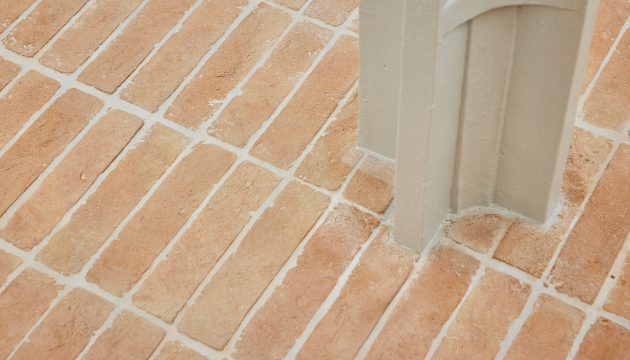Through working with both landlords and occupiers during the last year, it has become clear to me that occupier outlook is going to make or break the market once we fully reopen. Occupier needs are changing and it boils down to a single question: How much do occupiers value the office now? When answering that question, it’s hard to aggregate thoughts and feelings across multiple industries and geographies, while separating the irrational from the lucid. In the aftermath of the GFC, it was assumed that everyone needed an office, there was just too much supply.
Now, we cannot take for granted that everyone values the workplace equally. It is no longer the case.
The market has changed
Old news to landlords but important to reiterate the point. The pandemic has caused the market to change, mainly due to occupiers – rightly or wrongly – questioning the value of the office as a means of production. That’s why I have found it useful to look at the issue is through the eyes of the occupier. Since the onset of the pandemic, four types of occupiers have emerged: The Stoic, the Deliberator, the Prisoner, and the Disruptor. Each offers a different opportunity.
#1: The Stoic
Arguably clients are like children and you shouldn’t have a favourite. But I do, and it’s the Stoic.
Their organisation continued to be successful and even grew throughout the pandemic. They were finding it difficult to maintain a strong company culture, and going remote-only for the foreseeable was inconceivable. It’s just not how they work.
While the cities emptied and the office was declared dead, the Stoic – spurred by a break option or lease expiry – calmly surveyed the destruction all around them, decided to ignore the naysayers, and take their own path. The office market was a lonely place back in mid-2020, but they have been rewarded handsomely; I’ve witnessed some of the most generous incentive packages on new offices since the depths of the early 2010s.
The Stoic has been able to reduce their costs, improve the quality of space, and benefitted from competition amongst over-resourced suppliers, negotiating costs down while getting rockstar service. On average they took 20-30% less space than originally planned, made possible by reducing the number of fixed desks while increasing investment in collaboration spaces (meeting rooms, pods, booths, and breakout), all supported by some new tech.
If you have a Stoic in your building, give them the absolute best deal you can stomach. They will be looking at alternatives and know the strength of their position. If you encounter a Stoic in the market, do likewise, the same applies. Landing one of these whales will help mitigate some of the disruption we’re in for over the next couple of years.
A textbook stoical deal is Wise (formally Transferwise) agreeing with Derwent London to expand into 50,000 sq. ft. in the Tea Building in Shoreditch (our sister company Switched on Space is installing their occupancy sensors, but that’s a story for another day).
#2: The Deliberator
The Deliberator can’t make up their mind, and who can blame them? They don’t have a pressing need to move because their company isn’t growing at the moment and working remotely seems okay so far. But they are worried about whether this will all work in the long-term. There are already some reports of staff burnout, and maintaining culture is becoming more and more challenging.
Working with the Deliberator means appraising options ahead of an impending lease event. Our agents might even look at some alternative buildings, but in the end, it will prove too much of a commitment. “Sorry, but I don’t have the budget for a move/project/etc”. That’s fine, I would probably say the same if I were in their shoes.
Instead, they will agree a short(ish) lease extension or break extension, tiding them over until things become more certain. They will set up a Zoom room or two and maybe buy some new furniture. A suite of new meeting booths will be their acknowledgement that the world of work has changed.
Whilst Deliberators are often overlooked or dismissed, I think they offer some of the best asset management opportunities for landlords. Their indecision won’t last forever, and while they are 50:50 on the office now, the balance could easily be tipped towards an enticing deal.
Costar has just reported that March was the busiest month for office leasing in over a year. Appealing to the Deliberator’s increasing sense of FOMO will play a part. When they see that somebody has already taken that nice office they viewed six months ago, their attitude towards the workplace will become more decisive.
The key to dealing with Deliberators is communication. Don’t assume that just because they are uncommunicative now, that they are not open to a deal. Forming a partnership with a deliberator reassures them that you have their best interests at heart, and will allow you to negotiate that win-win deal more quickly.
#3: The Prisoner
Prisoners know that they need to change, but are hamstrung by the terms of their existing lease. They want to move, to downsize, or even go office-free for a while. They hate having to pay rent; their business has suffered during the pandemic, staff numbers have decreased, and the growth they planned for just hasn’t happened. They would simply stop paying and walk away from the lease, but they are still solvent and hoping to rebound after lockdown, so it’s not an option. Instead, they just put their lease on the market and pray.
I feel for these organisations, many of which signed leases during 2019. We have just been asked to advertise an office with nearly £1m pa in rent due for six more years. That must hurt if you don’t need the space.
It’s tempting to leave prisoners to their fate but doing so ignores an incredible asset management opportunity. Aside from the fact that heavy discounting and shoddy marketing details do nothing for the wider building or estate, there is money to be made.
If your building is truly one of The Best, then it is going to fare okay post-pandemic. This is an opportunity to agree a surrender deal, reposition, and relet (or even convert to an alternative use) while banking a profit. This approach is only for the brave, but offers potentially massive rewards, new space, a new tenant and secure income.
Alternatively, helping the prisoner with their marketing is a sensible and lower-risk alternative. Being in control of the narrative, aesthetics and pricing will be important in a world where buildings increasingly trade on their brand. Besides, why delay the inevitable? The Prisoner is leaving when their lease ends, or maybe even sooner if they go bust or do a flatpack. It makes sense to ride the reopening wave with great space to offer, rather than making the breakup unnecessarily drawn-out.
#4: The Disruptor
TSP doesn’t have any Disruptor clients because they don’t need us. But I know they exist and know people who work for them. To them, I represent the redundant middlemen, the ‘suits’, and I will be replaced by AI soon (and they are partly right about that last part).
For these people, the pandemic is an undeniable signal that the office is dead and good riddance! They always hated paying for a pointless building anyway. Their small, decentralised workforce is mostly in the UK, with some outsourcing to emerging markets. They know that the future is online and employ remote consultants for projects only when needed, focussing their efforts on virtual networking to secure projects and contracts.
If pushed, they will get a membership at a coworking space or members club, and hire meeting rooms for quarterly team days and pitches.
I respect The Disruptor as a harbinger of the future. As the secular trend towards self-employment (or the gig economy) and smaller company sizes continues, the number of these organisations will increase quickly. As a growing market, it is one that smart landlords must attune themselves to.
Catering to disruptors means adapting to a totally different way of working. It involves monetising time in hours rather than years, and calls for a far more active style of management. Providing open communal spaces with coffee shops, a bar and free Wi-Fi would be a good start, allowing you to experiment with divestment from the increasingly threatened 5 or 10 year lease.
Conclusion
We are at a disruptive phase in the property cycle, and over the next few years reputations and fortunes will be made. It is an opportunity for the next generation of landlords to thrive and adapt to changing occupier needs. But doing so calls for a fusion of old school skills and new management models.
The need to communicate has certainly not gone away. In fact, it is more important than ever. So do what your grandad would have done; meet your customer for a coffee (or something stronger), and find out which type of occupier they are. Good things will inevitably follow.
About
TSP Director Jonathan Vanstone-Walker reflects on the commercial property industry, reviewing the impacts of the pandemic, future space strategy, and changing occupier needs.
Featured Stories & Insights
 30th January 26
30th January 26
Data, Demand & the Future of Office Performance
In conversation with Greg Blanchard, Portfolio Manager at TSP Data has become a big theme...
Read More 28th January 26
28th January 26
Goodman’s TSP Goes Nationwide with KSA Acquisition
LONDON, 20th January 2026 | News by Tim Burke, EG TSP, the office-focused property manager...
Read More 8th January 26
8th January 26
Business Rates are Changing in April: 4 things charities should watch for
Business rates are being reset in April 2026, and for charities this is a direct...
Read More 8th January 26
8th January 26
4 Ways to Win the Office Game in 2026
The office market is recovering, but not evenly. As we move into 2026, one thing...
Read More 17th November 25
17th November 25
Lessons Learnt from 2025 | by Zac Goodman
The market shifted (again), expectations changed (again), and the way people use space evolved in...
Read More 10th November 25
10th November 25
From Vauxhall to Value: How Aldgate Became London’s Charity Heartland
TSP’s Jonathan shares his perspective on why Aldgate has become the go-to destination for London’s...
Read MoreView all